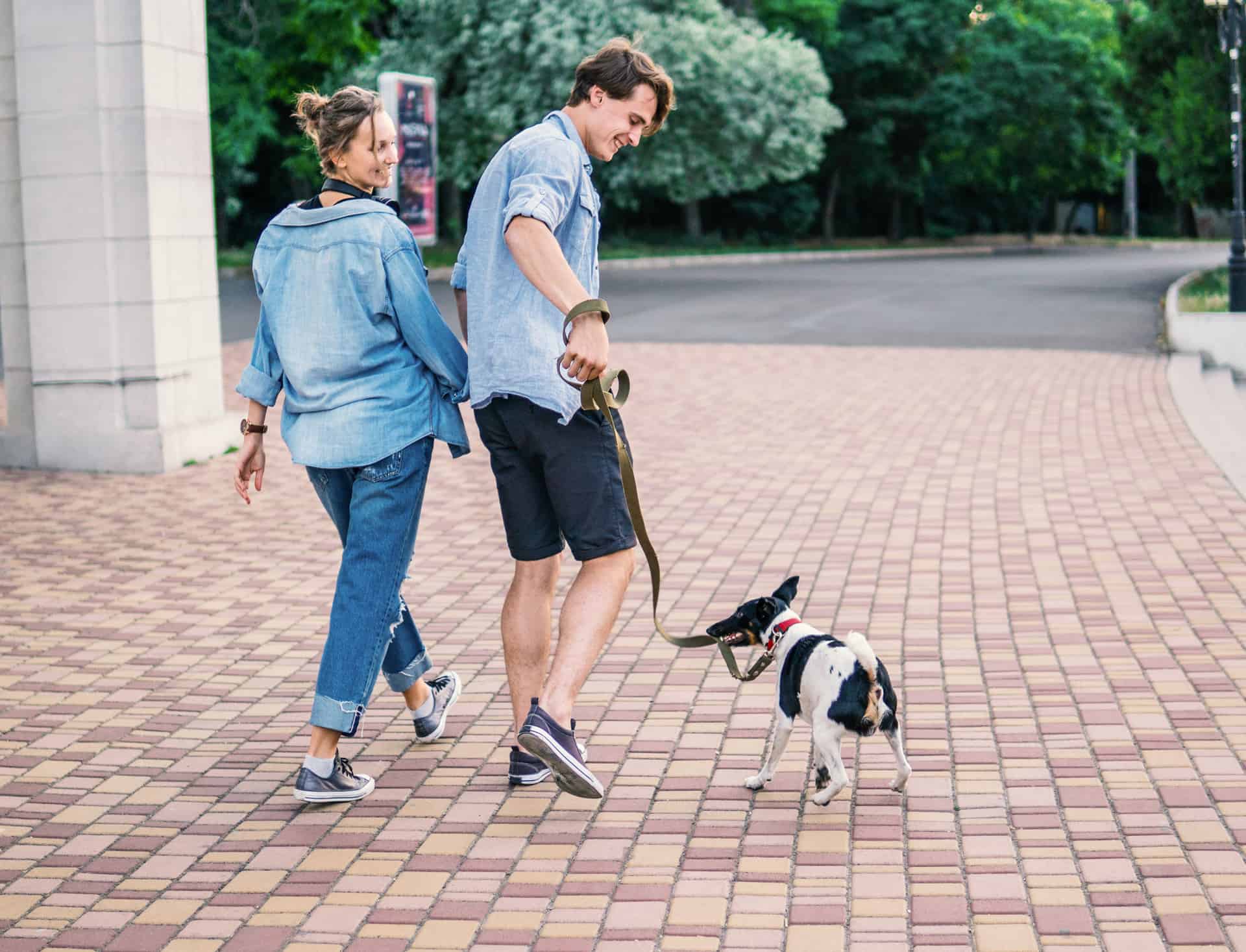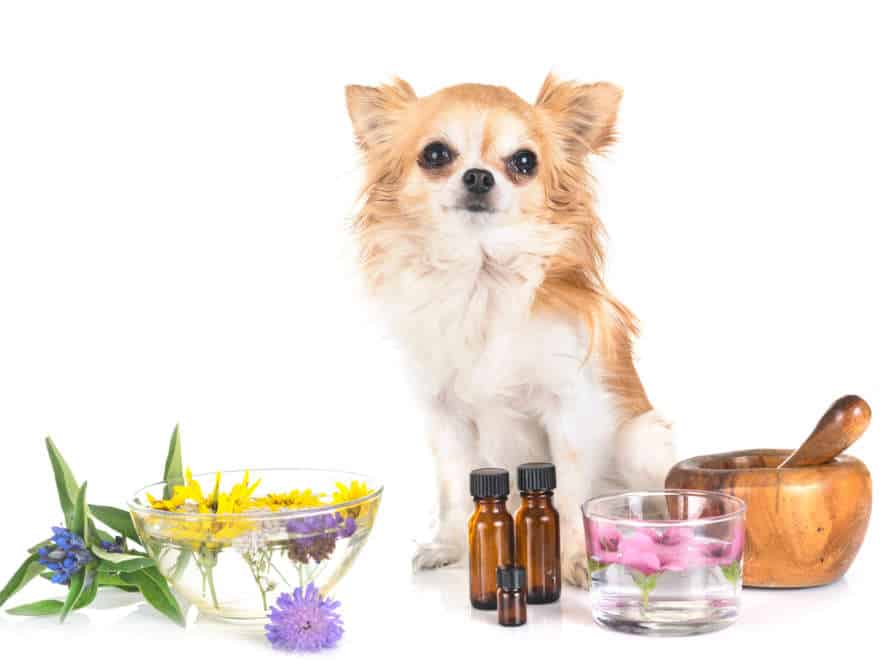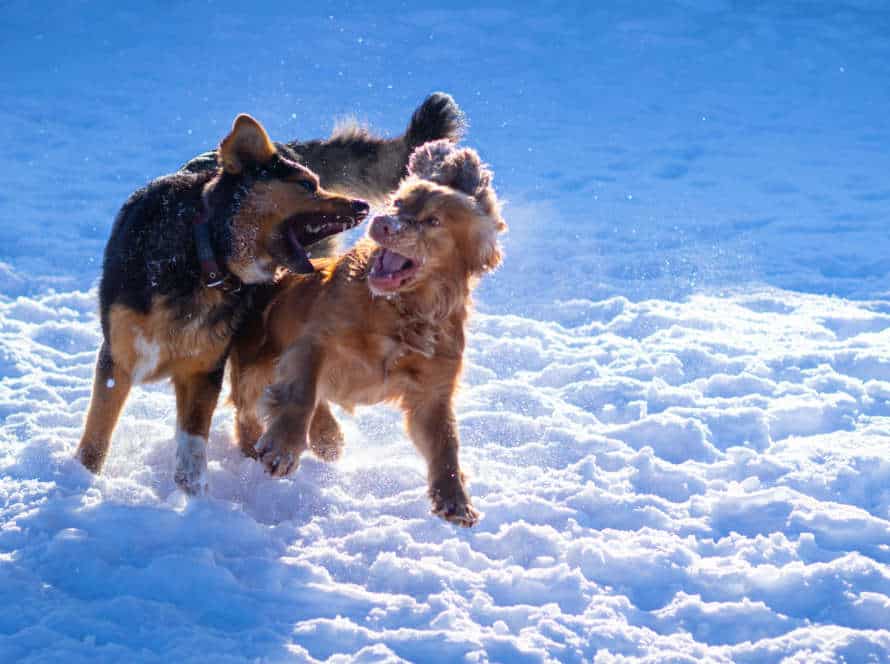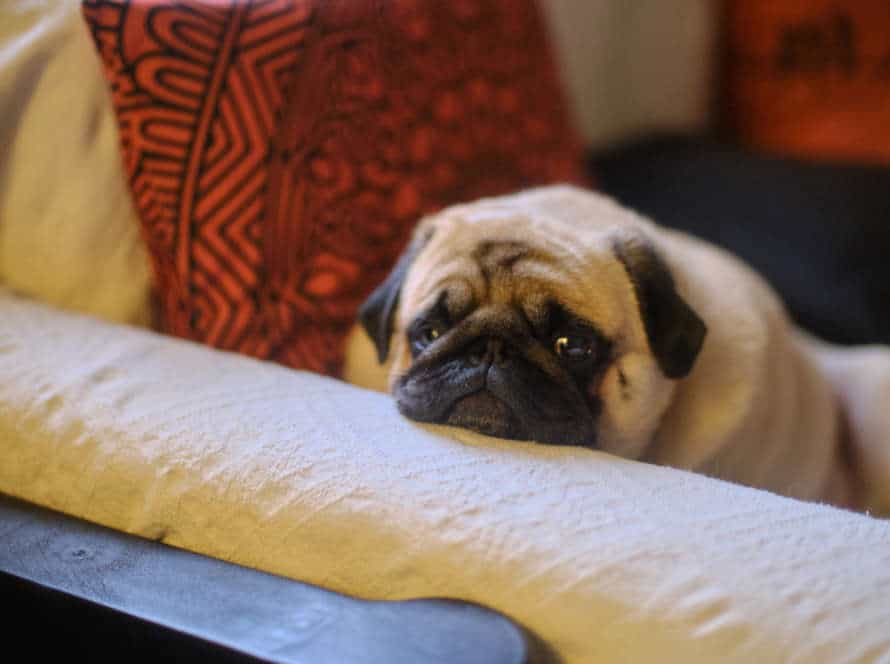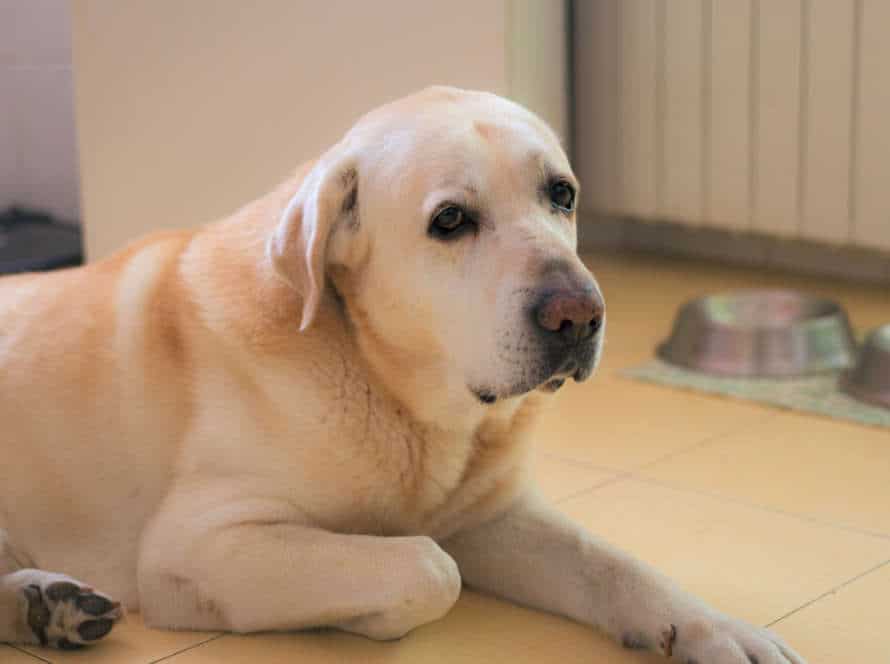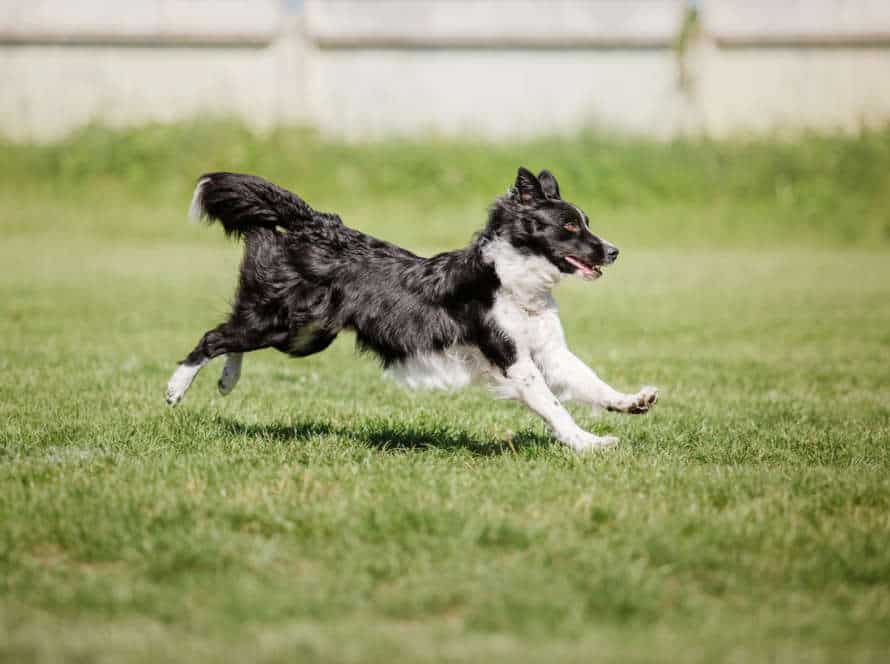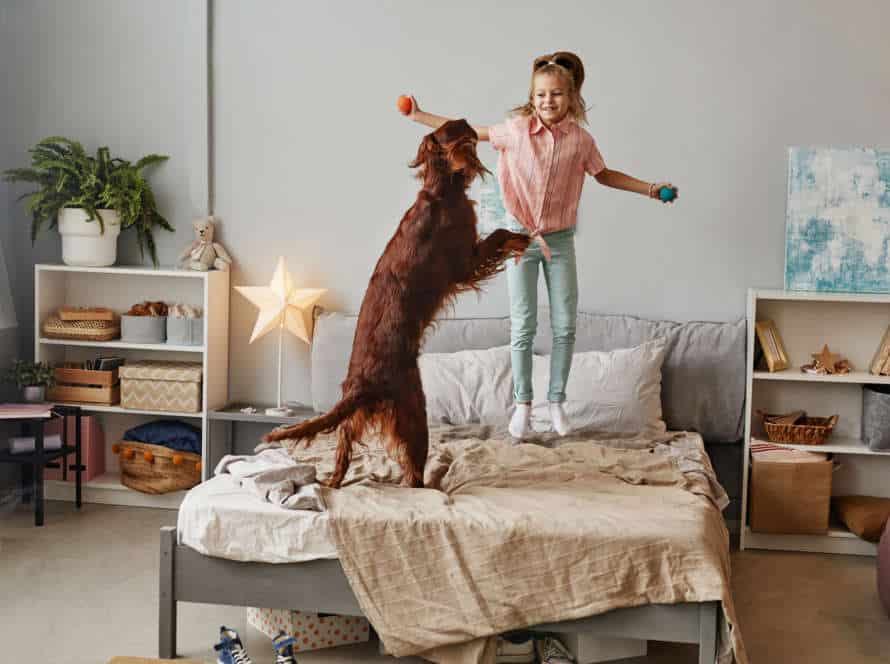Teaching Bite Inhibition to Puppies: Curbing Aggressive Biting
Teaching bite inhibition to puppies is important! It stops aggressive biting and stops injuries to humans and animals. Puppies use their mouths to explore and play – but they have to learn not to bite too hard. Here are some tips:
- Make sure your pup has lots of chew toys.
- When your pup bites too hard during playtime, stop playing and say “ouch” in a high-pitched voice.
- Then ignore the pup for a bit – that’s how they learn.
- Give your pup treats and praise when they play nicely.
- Be consistent and patient – training takes time.
Train your puppy in bite inhibition and you’ll have a happy and healthy relationship with your furry friend!
Understanding Bite Inhibition in Puppies
Bite inhibition is a term used by canine behaviorists. It means the control puppies learn to have over the strength of their bites. This is very important for puppies to understand, as it can help stop aggressive biting habits. To teach bite inhibition to puppies, dog owners and trainers must know the basics of this concept.
What is Bite Inhibition?
Bite inhibition is a skill all puppies must learn. It helps stop aggressive biting and makes playtime fun and safe with other dogs and humans.
As a pup’s owner, teaching them bite inhibition is key. Here’s how:
- When your pup bites too hard during play, say “ouch” or yelp.
- Then, stop playing and turn away attention for a few seconds.
- This teaches the pup that hard biting ends playtime and gentle mouthing leads to more playtime.
- Keep doing this and reward gentle biting, until the pup learns to control its biting force.
Why is Bite Inhibition necessary for Puppies?
Bite inhibition is the capacity of pups to control the intensity of their biting. It is vital to show puppies bite inhibition as it decreases the danger of injury and hostility towards people and other animals.
When pups play with each other, they learn to manage the force of their bite to avoid harming their companions. However, when playing with humans, pups may not comprehend that their biting can cause pain and harm. Teaching your pup to comprehend bite inhibition helps in stopping aggressive biting and instructs them how to securely play with people and other animals.
Here are some approaches to teach bite inhibition to your pup:
- Play with your pup utilizing toys instead of your hands or feet.
- When your pup bites too hard, say, “Ouch!” in a high-pitched voice and stop playing.
- Resume play after a few minutes, and keep on repeating the procedure until your pup learns to control its bite.
Remember, tolerance and positive fortification are fundamental when preparing your pup. Pro Tip: Consistency is the key, so guarantee everybody in your home utilizes similar preparing strategies for your pup.
When to start teaching Bite Inhibition to Puppies
Bite inhibition is a must-know skill for all puppies. It helps prevent aggression when they grow up. The best time to begin teaching this is between 8 and 12 weeks of age. This is when they are most open to learning.
Here are some tips:
- Set clear boundaries and rules for playtime and interactions.
- Provide chew toys and direct their biting towards them.
- Say a firm “no” or “ouch” to show biting isn’t okay.
- If they keep biting too hard, stop playing and ignore them for a while.
- Reward good behavior with treats and positive reinforcement.
With patience and consistency, puppies can learn bite inhibition. This helps them become well-behaved adults.
Tips for Teaching Bite Inhibition to Puppies
Teaching pups bite inhibition is key. It helps them stay friendly and well-mannered when they grow up. Bite inhibition is being able to control the strength of their bites. This teaches them when biting is and isn’t OK. It can even stop aggression in the future.
Here are some tips for teaching bite inhibition to puppies:
- Redirect their bites to appropriate toys and consistently reinforce this behavior.
- Yelp or say “ouch” loudly when they bite too hard to simulate a littermate’s reaction. This lets the puppy know they’ve hurt you and to be more gentle.
- Use positive reinforcement when they respond appropriately by rewarding with treats or praise.
- Be consistent with rules and boundaries to prevent mixed messages and confusion for your pup.
Start with Gentle Play
Bite inhibition is a must-have skill for puppies. Start with gentle play to teach them this. Here are some tips:
- Play games like fetch, tug-of-war and hide-and-seek. This will show your pup how to control the pressure and intensity of its bite.
- Reward good behaviour with treats and praise.
- Socialize your puppy. Get it used to different people, animals and environments.
- Don’t encourage rough play. When your pup bites too hard, yelp “ouch” and stop paying attention.
- Provide toys and chew bones. This will satisfy its need to chew and stop it from biting too much.
Remember: it takes patience and consistency to train bite inhibition. Work with your pup every day for best results.
Use Positive Reinforcement when your Puppy is Gentle
Positive reinforcement is a great way to teach puppies bite inhibition and reduce aggressive biting. Here’s what to do:
- Give your pup chew toys during playtime to stop them from biting too hard.
- When they bite gently or lick, reward them with treats or their favorite toy.
- If they bite hard, say “ouch” loudly and end playtime. Then direct their attention to a chew toy or treat.
- Consistently reward gentle behavior with praise and treats. This will encourage them to be more gentle.
- Eventually, they’ll learn to curb aggressive biting and interact more gently.
Do not use Physical Punishment
Teaching bite inhibition to puppies is necessary. Don’t use physical punishment. Here’s how:
- Use treats and praise to reward good behavior and stop biting.
- Guide them to a chew toy or bone when they try to bite.
- Avoid rough play that could make them bite.
- Be consistent with rules and set boundaries.
- Ask a trainer or behaviorist if your puppy has persistent or aggressive biting.
Be patient. With the right support and reinforcement, your pup can learn appropriate bite inhibition.
Use a Firm “No” and Withdraw Attention when your Puppy bites
It is essential to teach your pup bite inhibition. To prevent aggressive biting, use a firm “no” and take away attention.
Do this:
- If your pup bites during play, yelp or say “no” firmly. Then, leave the room or turn your back.
- Wait a few seconds and go back. Do this whenever they bite.
- Consistency is essential. Everyone must follow the same plan.
Don’t use physical punishment or aggressive techniques, as it may make their aggression worse.
Tip: Praise and reward gentle behavior. This will make them repeat these behaviors and learn bite inhibition.
Teach your Puppy to Play with Toys Instead of Biting
Bonding with your pup is great! But teach them to play with toys, not bite. Here’s some tips to help stop aggressive biting:
- Give your pup lots of chew toys. Get them to use those instead of your hands and feet.
- Ignore the pup when they bite or act aggressively. Attention – even negative – can reinforce this behavior.
- Use positive reinforcements like treats and praise when they play or chew on toys.
- Be consistent with the training. Make sure everyone knows how to interact with your pup.
By teaching bite inhibition early, you and your pup can have a fun, happy relationship free from aggressive biting!
Advanced Techniques for Teaching Bite Inhibition to Puppies
Teaching puppies bite inhibition? Patience and dedication are key! To use the techniques correctly, it’s important to understand the options.
Let’s explore the advanced strategies for teaching pups bite inhibition!
Play with Other Dogs
Playing with other dogs is a great way to teach pups bite inhibition and prevent aggressive biting. It helps them understand the right level of bite pressure to use during playtime.
Make sure to supervise their playtime! Look out for signs of aggression and intervene if needed.
Start with gentle play and increase intensity as your puppy learns control.
Playing with other dogs can also help socialize pups and make them less aggressive around other dogs.
Try Training Classes
Training classes offer a structured setting to teach puppies bite inhibition. This helps curb aggressive biting, and improves their behavior around people and animals. Here are some advanced techniques that might be used:
- Teach impulse control – Puppies require learning how to control their impulses to bite. Training classes may have exercises like “leave it” and “drop it”.
- Socialization – Socializing your pup with other puppies and dogs is essential to stop aggression and biting. Training classes give chances for puppies to socialize in a managed atmosphere.
- Redirection – If your puppy bites or nips, turn their focus to an appropriate chew toy or treat.
- Positive reinforcement – Rewarding desired behavior with treats, praise, and playtime is an effective way to reinforce good behavior and cut down biting.
- Consistency – Consistency is key when teaching bite inhibition. Puppies react well to routines, and training classes supply a structured routine to help them learn.
Training classes can provide various advantages to your puppy’s growth, such as socialization, discipline, and improved behavior. Pro tip: Consult a professional trainer to pick the best training class for your puppy’s needs.
Use Taste Deterrents
Taste deterrents can aid when teaching puppies bite inhibition. Bitter apple spray or diluted vinegar, applied to your skin, can help with aggressive biting. Say “ouch” or yelp when a puppy bites too hard. Then, stop playing and ignore them for a few minutes.
Repeat this process as needed with the taste deterrent. Note: Don’t use this as a training substitute. Positive reinforcement is key, like treats and praise, to encourage learning.
Using Crates for Puppies with Aggressive Biting
Crate training can help teach puppies with aggressive biting habits how to inhibit their bites. Here’s how:
- Place pup in a crate with a chew toy or treat and leave for a short time.
- Put your hand in the crate and let them smell and explore.
- If they bite, pull away and say “ouch” in a firm voice.
- If biting continues, end session and put them back in crate.
- Repeat, gradually extending the length of each training session as biting behavior improves.
- Reward good behavior with treats and positive reinforcement.
Pro Tip: Supervise pup during crate training and don’t leave them unattended for long. Don’t use crate training as punishment.
Get Professional Help if Necessary.
Teaching bite inhibition to puppies is a must. But if they still bite, you may need help. Here are a few tips:
- Give rewards when they nibble lightly, not aggressively.
- Offer toys or chewable items when they try to bite.
- Put them in a time-out if they become too aggressive.
- Get professional help if you can’t manage it.
Patience and consistency are key. And remember – no punishment, only positive reinforcement!
Frequently Asked Questions
Q: What is bite inhibition and why is it important to teach it to puppies?
A: Bite inhibition is the ability of a dog to control the force of its bite. It is important to teach it to puppies because it helps prevent serious injuries to people and other animals, especially if the dog becomes aggressive later in life.
Q: How can I teach my puppy bite inhibition?
A: You can teach your puppy bite inhibition by redirecting their biting onto appropriate toys, using a firm “no” command when they bite too hard, and rewarding them when they use a soft mouth.
Q: At what age should I start teaching my puppy bite inhibition?
A: You should start teaching your puppy bite inhibition as soon as possible, ideally between 8 and 12 weeks of age.
Q: What are some signs that my puppy may have aggressive biting tendencies?
A: Some signs that your puppy may have aggressive biting tendencies include growling, snarling, or snapping when they feel threatened or provoked, or biting down hard and refusing to release.
Q: If my puppy continues to bite aggressively even after I’ve tried teaching bite inhibition, what should I do?
A: If your puppy continues to bite aggressively, you should consult with a professional dog trainer or behaviorist to help you address the issue.

